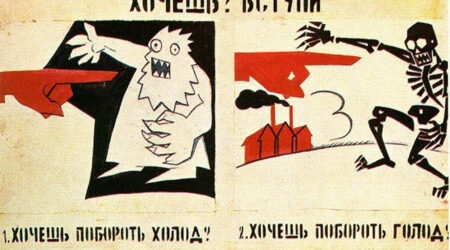Love and Mortality in a Dying Empire
Super Sad True Love Story, the third novel from New York-based Russian-American writer Gary Shteyngart, is a dystopian romance set against the backdrop of America’s impending economic, political, and social collapse. A relentless satire on our nation’s cultural complacency and financial irresponsibility, Shteyngart envisions an imminent future where Secretary of Defense Rubinstein has embroiled America […]
 Super Sad True Love Story, the third novel from New York-based Russian-American writer Gary Shteyngart, is a dystopian romance set against the backdrop of America’s impending economic, political, and social collapse. A relentless satire on our nation’s cultural complacency and financial irresponsibility, Shteyngart envisions an imminent future where Secretary of Defense Rubinstein has embroiled America in a financially ruinous military quagmire in Venezuela and the ruling Bipartisan Party has allowed the nation’s spiraling national debt to place our economic fate in the hands of the Chinese People’s Capitalist Party.
Super Sad True Love Story, the third novel from New York-based Russian-American writer Gary Shteyngart, is a dystopian romance set against the backdrop of America’s impending economic, political, and social collapse. A relentless satire on our nation’s cultural complacency and financial irresponsibility, Shteyngart envisions an imminent future where Secretary of Defense Rubinstein has embroiled America in a financially ruinous military quagmire in Venezuela and the ruling Bipartisan Party has allowed the nation’s spiraling national debt to place our economic fate in the hands of the Chinese People’s Capitalist Party.
As in many dystopian novels, we see America’s implosion through the eyes of an anxious everyman, lovable middle-aged schlemiel “Lenny or Leonard” Abramov, and the object of his affection, nubile and confused young college grad Eunice Park. Told through diary entries and messages exchanged on a ubiquitous social networking site called GlobalTeens, the novel captures our personal fears and national concerns and reflects them back to us through a mirror of artful distortion, droll criticism, and melancholy humor.
Sweet and gentle Lenny, the only son of lower middle class Soviet immigrants, is a deprecating self-portrait of the author. Like the protagonist, Shteyngart was born in the USSR and immigrated to America with his family at an early age. Now approaching forty, this latest work finds Shteyngart in a more contemplative mood than his previous novels, ruminating on issues like aging, regret, retirement, love and compassion across generations, and the mortality of people, ideas, and empires. Shteyngart portrays the many stages of Lenny’s amour fou for his much younger Korean girlfriend, from its germination and growth to its lackluster demise, with both tenderness and delicate mockery. Eunice, with her bachelor’s degree in Images and a minor in Assertiveness, makes an admirable foil for the always endearing Lenny, as her initial brashness gradually gives way to feelings of doubt, inadequacy, and frailty about her place in such a violent and uncertain world.
Conversely, there is a spectacular quality to Shteyngart’s vision of the death throes of American hegemony, especially in his pessimistic portrayal of the ruthless cynicism of our military-industrial complex. When the yuan-pegged dollar finally collapses and the government declares bankruptcy, widespread rioting is eventually halted by the military’s targeted destruction of specific racial and professional groups, as well as those with low credit ratings and Venezuelan War Veterans that the government can no longer afford to pay. Shteyngart effectively uses absurdist hyperbole and precise exaggeration to combine horror and comedy throughout the novel, maintaining a consistent tone while occasionally jarring the reader’s attention with a well-timed note of terror or joy.
Speaking on the subject of Russian-American rapprochement, Shteyngart once joked that a Palin-Putin ticket could really cement all of Russia’s liberal gains over the last two centuries. In the novel, there are furtive mentions of “unrest near Putingrad in HolyPetroRussia” and in VassalStateBelarus. Shteyngart clearly has the collapse of the Soviet Union in mind in his depiction of America’s fragmentation, though these references are made primarily for atmosphere and whimsy. But a darker thought underlies these suppositions; at one point, Lenny wonders if coming to America was the right move after all for the Abramovs, considering its ultimate demise. His conservative parents would certainly say “Da!,” as would ambivalent Lenny in the final tally. But, what if . . . ? Like the best satirists, Shteyngart clarifies our world, revealing what is in front of us while questioning what it is we actually see (though some predictions are way beyond the realm of possibility, e.g. “newly hip Staten Island.”)
Unlike the remorseless Southern yokels in the National Guard, the novel’s urbanites fight tooth and nail to land top jobs in the media and credit industries. Social media has become the sole form of communication, as self-aggrandizement, unrestrained competition, and advertising have replaced measured thought, intellectual engagement, and journalism in their former roles as conduits of our national discourse. Lenny possesses what may be one of America’s last private libraries, as Shteyngart decries the death of literature in a world where image is everything and social networking is the lingua franca of this brave new digital age. He implores us to think in a land where we increasingly just buy, gradually turning into human credit cards.
Shteyngart chronicles a world where we are judged as individuals solely by our demographic data. Pedestrians’ credit scores flash on traffic poles like police speedometers, and bad credit appears to be a primary cause for deportation (government posters urge Asians to spend and Hispanics to save). Thanks to the mandatory äppärät (a too-smart smartphone), all citizens can find out everything they need to know about someone just by pointing it at them. So long, privacy! Lenny also works for a health company that is developing an elixir of youth and happens to be part of the same conglomerate as a security agency that seems to be seizing control of the war-torn nation. When Lenny asks his friend and boss Joshie Goldman if he can try the drug, he is told politely, in New Age jargon, that he’s doing just fine without it. Immortality is only for the wealthy.
As an irreverent but assiduous chronicler of the immigrant experience, Shteyngart is interested in the intersection between assimilation and cultural atavism. In the novel he upbraids America’s continuing tradition of race-baiting, especially as it’s expressed by political and media demagogues, as well as in corporate marketing and the justice system, the latter upheld by our nation’s military in its division and stereotyping of different races and beliefs.
However, Shteyngart seems to do a similar thing with his characters, albeit in a more complex way. There is all of the gallows humor and self-deprecating Jewish caricatures that are stock-in-trade in Jewish comedy, but many of the novel’s villains are also Jewish. And while Shteyngart’s affection for Lenny’s parents is never in doubt, there is also a lot of criticism of what he sees as their “inbred Soviet Jewish conservatism,” which offends their liberal American Jewish sponsors to the point of abandoning them. The television at their home is always set to either FoxLiberty-Prime or FoxLiberty-Ultra, and Mr. Abramov begins dinner with a toast “To the Creator, who created America, the land of free, and who give us Rubinstein, who kill Arab . . . ” But Shteyngart here is equally poking fun at the knee-jerk liberalism of American Jews, meanwhile celebrating his own “inbred Russian willingness to get drunk and chummy” and “inbred Jewish willingness to laugh strategically at [him]self.”
Like Chekhov, Shteyngart writes with a genuine sincerity that never crosses over into the maudlin or sentimental, the kind of honesty that is suspicious of overt, self-proclaimed truth and the men who speak it. Underlying all the criticism of American triumphalism and materialism is a belief that the nation’s better angels will ultimately prevail. When some self-righteous Italians criticize the former American Empire at the end of the novel, an older Lenny peevishly appeals to them for silence and compassion. Like Aeneas gazing at a mural of the Trojan War in a foreign land, Lenny sees all that he lost along the way, the futility of so much suffering, the joy and melancholy of an antique world. As Virgil wrote, “these are the tears of things, and our mortality cuts to the heart.”
Oleg Ivanov is currently accepting job offers.





